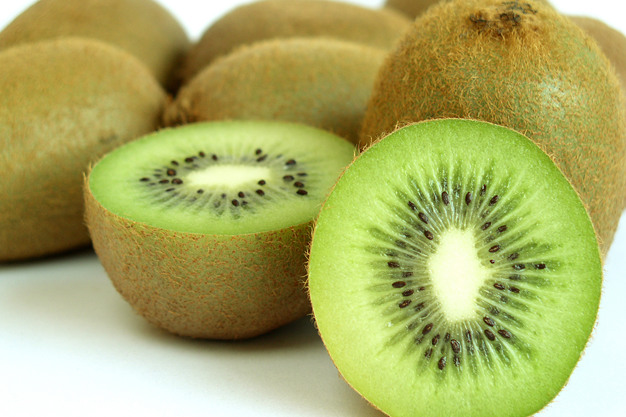Currently, kiwi production in Spain is showing a moderate growth trend, especially in regions such as Galicia, Asturias, and the Basque Country, which account for most of the domestic production.
"In 2023, kiwi production in Spain reached 26,900 tons, which represents a slight 2.5% decrease compared to the previous year. This figure is in line with the average of the last five seasons. Most of the production is in Galicia, which accounts for approximately 65% of the national total, followed by the Basque Country, Navarre, Asturias, and Cantabria," says Juan Prados Edwards, CEO of Generandi.

"However, the cultivated acreage and harvested volumes are still not sufficient to meet the domestic demand. Also, Spanish growers are increasingly opting for varieties adapted to the local climate and implementing sustainable techniques that help improve the quality and prolong the fruit's post-harvest shelf life," he says.
"As far as imports are concerned, Spain remains one of the main kiwi importers in Europe. Although there is no specific data for kiwi available, Spain still depends to a large extent on imports, especially from countries such as Italy, Greece, Portugal, and, in the off-season, from New Zealand and Chile." This constant flow means that kiwi is available all year round in a country where per capita kiwi consumption stands at around 2.7 kilos per year, which makes it one of the biggest consumers in Europe. "According to a study by AECOC Shopperview, 49% of the Spanish population consumes kiwis, and of these, 22% do so on a daily basis. The green variety is preferred by 87% of consumers, who appreciate its flavor and health benefits," says Juan.

"Besides, consumers increasingly seek local products and value the use of sustainable agricultural practices, opening up opportunities for domestic production and quality labels. Growth opportunities also lie in improving marketing channels, promoting consumption among segments of the population who are less familiar with this fruit, such as young people, and varietal innovation."
"There's a growing adoption of Gold kiwi varieties, which have lower cold requirements"
Varietal innovation is, in fact, playing an important role in kiwi production in Spain and Portugal, which is increasingly influenced by factors such as climate change. The fact is that the reduced number of cold hours in production areas has led to volumes falling by up to 60% in some farms.
"In Galicia, this has led to green kiwi plantations being replaced by vines," says Juan. "Because of this, there's a growing adoption of Gold kiwi varieties, which have lower cold requirements, as a response to the new climatic conditions. The Kibi, Jimgold, and Dori varieties are the ones preferred by growers."

According to Juan, "In Portugal, where 2,800 hectares are grown and around 28,000 tons are produced each year, growers are also introducing Gold varieties and mini kiwis (arguta) to adapt to the new climatic conditions and market demands."
"It is worth noting that, in Spain, Gold varieties account for approximately 10% of the domestic production, but their cultivation is expanding, especially in regions such as the Valencian Community and Andalusia," he says. "In fact, Gold and red kiwi varieties, characterized by their lower cold requirements, are emerging as the future of kiwi cultivation in southern European countries such as Italy, Greece, Spain, and Portugal."
"Climate change has led to milder winters in southern Europe, which is having a negative impact on traditional green kiwifruit varieties, such as the Hayward, which require between 700 and 800 hours of cold for optimum flowering. In contrast, Gold and red kiwi varieties belonging to the Actinidia chinensis species need only 350 to 400 hours of cold, which makes them more suitable for the current climatic conditions in the region. Varieties like the Sunxy Gold and Rossy Red (Kibi) or Kicoca are gaining ground in southern Europe," says Juan.

Leader in Gold kiwi planting
Generandi is a business group with an integral vision in rural asset management, excelling in land acquisition, plantation development and fruit marketing. "We have a qualified team of more than 100 people, with more than 25 years of experience in the entire value chain. This in-depth knowledge is allowing the management of more than 2,000 hectares of agricultural land."
The group is a leader in the planting of Gold kiwifruit, including varieties such as Kibi, which show significant potential to expand to several hundred additional hectares.
"Our approach covers the entire value chain, from investment strategy and asset management to field operations and marketing. We have a regional presence with offices in various parts of Spain and Portugal," says Juan.
"The kiwi sector in Spain and southern Europe is in the middle of a dynamic transformation phase, driven by changes in consumption, production, and international competition. It is also adapting to new varieties and cultivation techniques, which will be crucial to maintain and increase domestic production," he says.
"In any case, we see that kiwifruit production undoubtedly has significant potential for growth in Spain. The key will be in the ability to adapt to changing market and climate conditions, the implementation of innovative varieties and growing techniques, and in effectively communicating the advantages of local production over imports."
 For more information:
For more information:
Generandi
Tel.: +34 917 793 120
[email protected]
https://generandi.com
